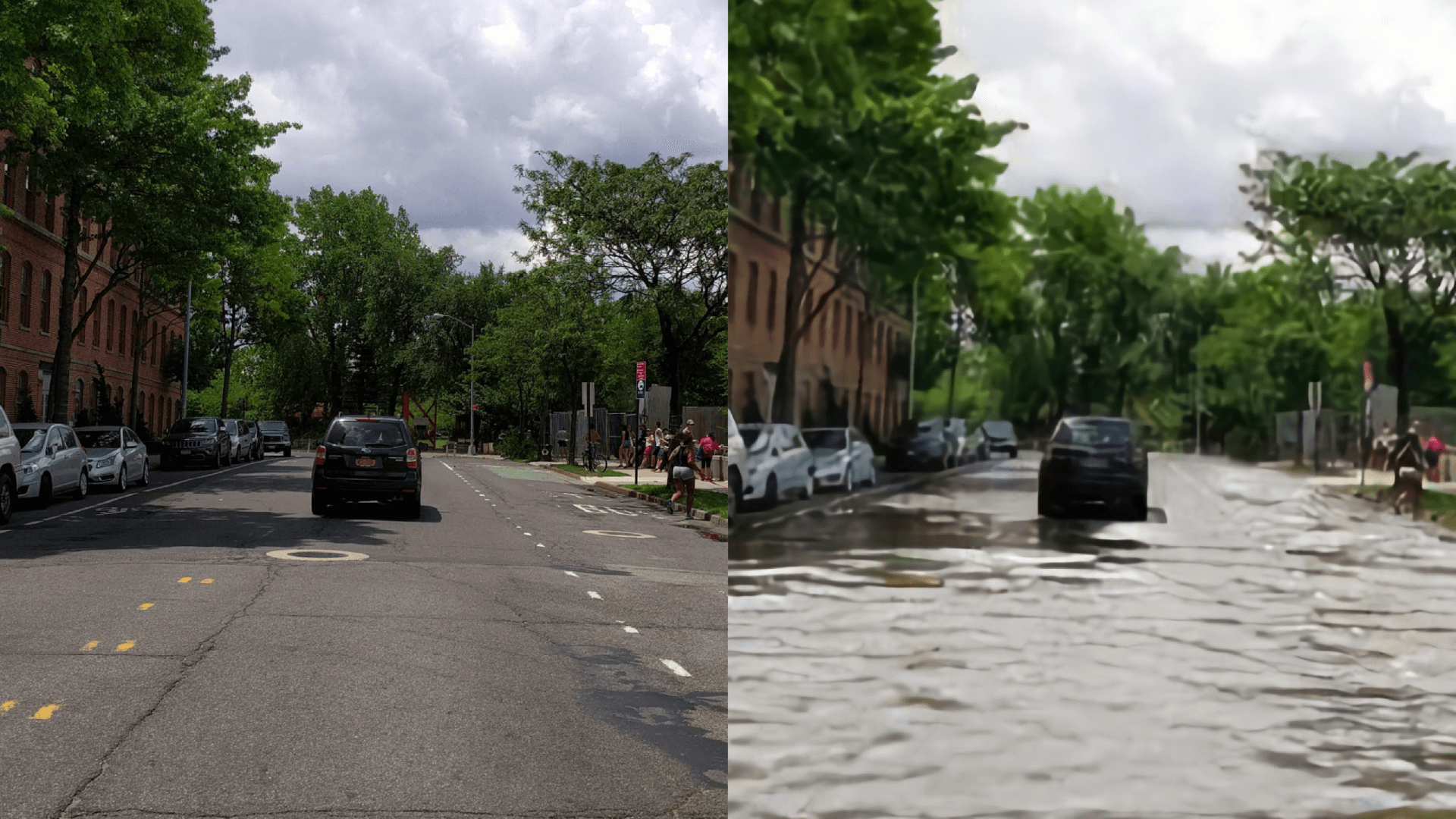
Today, RBC Borealis announced it will collaborate with MILA to support a machine learning research initiative on climate change.
Climate change is indisputably one of the biggest challenges of our time. Global temperature rise, glacial retreat, sea-level rise and extreme weather events are just a few examples of the impact that humans are having on Earth. While modern society is at the centre of this change, there is currently a disconnect between human responsibility and awareness. People have a hard time understanding how climate change affects them personally and what it means for their future.
MILA researchers, led by Prof Yoshua Bengio, have developed computer vision algorithms to personalize the effect of extreme weather events on locations of interest. Given an address, this machine learning model can generate a photo-realistic image can visualise the impact of extreme weather phenomena in that region as predicted by a climate model associated with that geography. Generative models are used to synthesize images showing flooding and other weather effects that are hyper-personalized and depicting of your own home or street.
This project falls under MILA’s research portfolio on “AI for Humanity” which involves a number of projects that are socially responsible and beneficial to society.
News
Joseph Bou-Younes joins RBC Borealis as Head of Product
News
RBC Borealis opens doors to Waterloo office and pledges support for Communitech’s Leaders Prize
News
